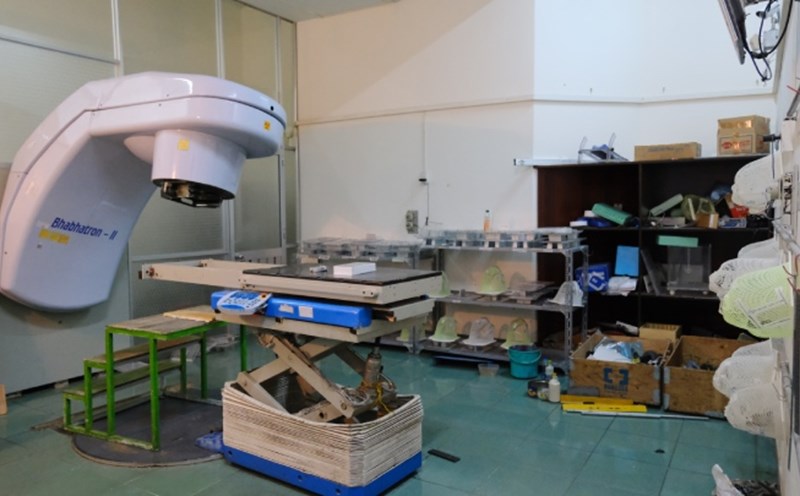The 5-year-old patient was born in June 2020 in Hanoi and was diagnosed with anorectal cosmetic Sarcoma, a rare form of cancer in children. The child was chemotherapized and operated on at the National Children's Hospital. The child was then transferred to Ho Chi Minh City Oncology Hospital for further radiotherapy using transcranial radiotherapy technique to recharge the source after high doses, a modern treatment method, requiring high techniques and specialized equipment.
The treatment process takes place from June 23 to 25, 2025, with a total of 5 radiotherapy sessions. Each shot lasted just over 4 minutes, giving a full-body anesthesia. The patient was given radioactive tubes to the treatment area, then a simulated CT scan, a dosage optimization plan and precise radiotherapy. Treatment ended on the afternoon of June 25 and the child was discharged from the hospital on June 26 in stable condition, without any side effects.
According to doctors, transverse radiotherapy brings many outstanding advantages, especially in cases where the tumor is deep or near sensitive organs. This method allows accurate dosage distribution at the affected area, while minimizing the radiation dose to surrounding healthy organs, which is very important for children, when the body is still developing. The treatment time is short, only from 3 to 5 days, while if using radiotherapy outside, it can last 4-5 weeks.
However, to implement transcranial radiotherapy for pediatric patients, the treatment facility must have adequate modern equipment, a team of pediatric anesthesiologists, medical physicists and experienced radiotherapists. This requires synchronous coordination between departments and leading hospitals.
Molesome Sarcoma is a rare cancer disease, with an incidence of only about 4-7 cases per million children per year, accounting for 3% of cancers in children. The disease is common in children under 10 years old and can appear in many locations such as the neck, genital urinary system or limbs. Treatment regimens include chemotherapy, surgery, radiotherapy and multidisciplinary care. In recent years, thanks to medical advances, disease prognosis has improved significantly: in cases without metastasis, the disease recovery rate can be up to 65 80%.
Since 2022, the National Children's Hospital and the Ho Chi Minh City Oncology Hospital have cooperated to conduct close radiotherapy for 5 children with atherosclerosis in many difficult locations such as the bladder neck, vaginal canal, ultrasound, tongue, etc. All children after treatment are stable and do not experience side effects related to radiotherapy.
The results of these treatments show the clear effectiveness of radiotherapy in modern pediatric cancer treatment strategies, opening up many hopes for pediatric patients with rare malignant diseases.











